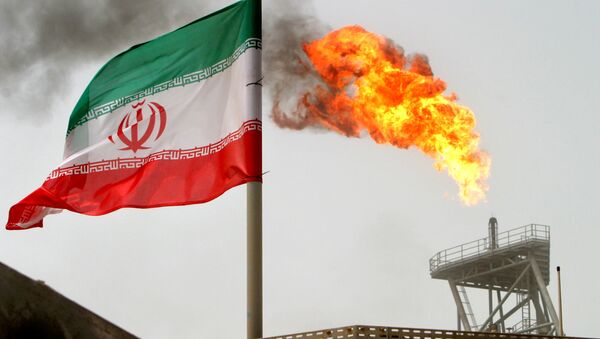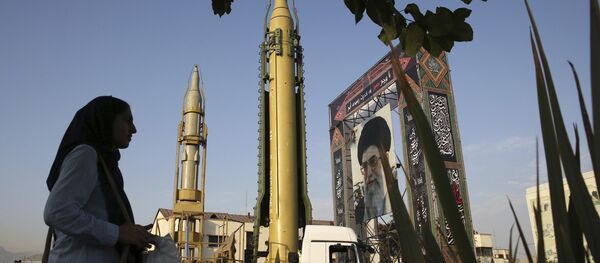Sputnik: The first reaction by Iran's President Hassan Rouhani to what was proposed by the Europeans was disappointment. What would Iran like to see in the deal that is made to preserve the original deal?
Foad Izadi: It's very complicated. The Iranian government gets about 30% of its annual budget from oil sales and what Iran wants from Europe is [for it] to continue purchasing Iranian oil like before, and the sanctions that the US wants to impose on Iran are illegal. It's illegal to sanction a member of the United Nations without a UN Security Council resolution. There is no UN Security Council resolution that prohibits countries from buying Iranian oil, so what the US is doing is illegal, but what Iran wants from Europe is that they should get the get the money back from those sales, and generally the money that Iran gets back from the countries that Iran sells oil to, they use that money to buy products and goods from that country. So if Iran is selling oil to Europe, Iran will buy European products using that oil money. Under the nuclear agreement, Iranian banking transactions were supposed to be free from sanctions from the United States, but the United States cut out of the nuclear agreement without any reason. You know that the International Atomic Energy Agency (IAEA) has certified ten times already that Iran has been compliant with the nuclear agreement. The fact that the Trump administration cut out of the agreement has nothing to do with Iran's performance, because Iran was doing what it was supposed to do. It has something to do with Trump wanting to destroy Obama's legacy, there are some lobbying groups in the US that would like to see some sort of military or a non-military confrontation between Iran and the United States and now that they’re out, not only are they prohibiting American companies from working with Iran, they're putting pressure on European companies, Russian companies, Chinese companies and other companies. This is also against international law.
Foad Izadi: Yes, Iran will follow through using legal tools in terms of going to international courts to prove the US' illegal activities. Iran also does have a problem at the United Nations because the US is a permanent member of the Security Council, so Iran cannot table a resolution condemning the United States, because the US can veto that resolution. So there’s some limitations on what Iran can do in the Security Council, but the best way to make sure that Trump fails in his foreign policy is to make sure Trump is alone in terms of the policies that he tries to implement against Iran. Even despite the fact that Iran was doing what it was supposed to do.
Sputnik: Although the European partners, both Emmanuel Macron and Angela Merkel, have stated that they’re very committed to preserving the deal, there have been various European companies that have already come out and said that, “we will not be able to go through with our previously agreed-upon deals to do business with Iran for fear of losing American business.” To what extent is that a problem?
Foad Izadi: At the end of the day, when Iran engages in economic activities, because of Iran’s wealth, the number of people that live here, [sanctions] generally target major projects. For example, you cannot finance major projects with small banks, they just won’t have the financial back up to do that. So major companies can then come under pressure from the United States to leave Iran, then that's obviously a serious problem. Companies are created to make money and Iran's market is quite good because of many years of sanctions.
Foad Izadi: Iranian President Rouhani mentioned this idea, but he did not use this [exact] terminology, he said that if Iran cannot sell oil then others in this region will face the same difficulty. The message that he had, given that at the oil market, oil is $70 some dollars, much more expensive than what we had in previous years, in order for the US to actually become successful in terms of implementing its policies some governments, it forces some governments, like the Saudi government, to produce about 2 million of barrels of extra oil to be able to offset Iran's not selling oil, not being able to sell oil. So in order for Trump to succeed, countries like Saudi Arabia, the UAE need to cooperate with the United States in this economic warfare against Iran. And the basic message that the Iranian President had was that: if you engage in economic warfare against Iran, that warfare is not going to be cost-free.
The views expressed in this article are those of the speaker, and do not necessarily reflect those of Sputnik.



